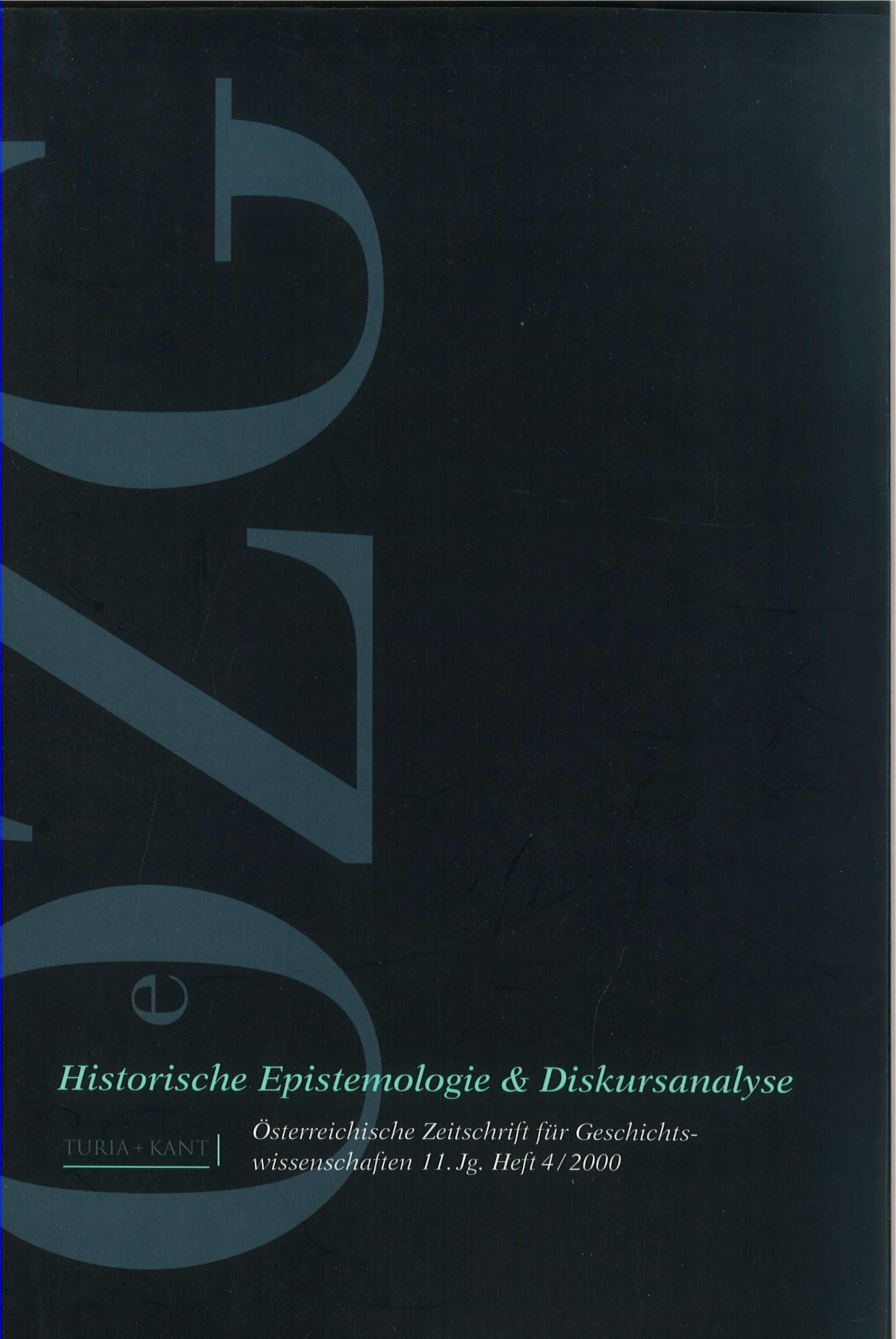Ordnungen des Zählens
Zur quantitativen Konstruktion des Sozialen (1550-1870)
DOI:
https://doi.org/10.25365/oezg-2000-11-4-3Abstract
As a contribution to the History ofSocial Sciences, this paper examines epistemolo- gical and logical discourses, concepts, methods and statements of quantitative ac- counting, measurement and construction of social units between 1550 and 1870. Referring to Ernst Cassirers Philosophy ofSymbolic Forms and Michel Foucault's The Order of Things the discursive strategies of continental travel questionnaires (Apodemiken) will be outlined in the methodological framework of Historical Epistemology as a concrete Historical Analysis ofScience Disciplines beginning in Renaissance Europe. lt will be shown that in the late 16th century the relational logic of similarity was the genuine and dominant discourse of making »things« and social units constructable, measurable and accountable. The second part of the paper analyzes the epistemological system of political arithmetic (Politische Arithmetik). The historical differences, shifts and transformations between this »Social Science« - appearing first in 17the century England (classical episteme) - and the Tabula Peregrinationes - appearing on the continent in the 16th century (renaissance episteme) will be shown. In the third part of the article the model of statistical deviation - centered in the interpretation of Gauss' bell-shaped curve by Quetelet - and its epistemological consequences for the social sciences in the 19th century are pointed out.


